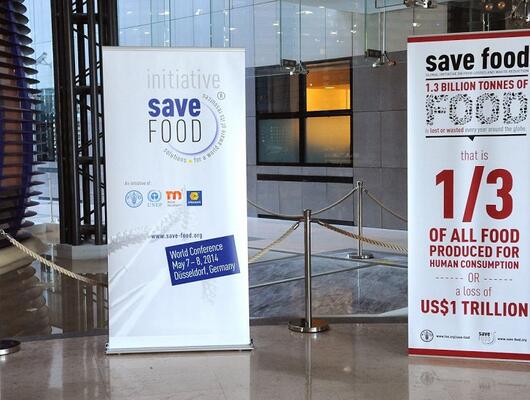
ITC highlights the importance of reducing food loss and waste at SAVE FOOD meeting
Efforts by the International Trade Centre (ITC) to reduce food loss and waste have been highlighted at a partnership meeting on the SAVE FOOD Initiative of the UN Food and Agriculture Organization (FAO) in Rome. The meeting took place on 10 and 11 December 2013 and brought together over 150 participants from 54 institutions that are active in food loss or waste reduction. Speaking on the topic “Enabling environment and investment in developing countries,” Kofi Essuman, ITC's Senior Adviser, Export Value Chain, discussed key areas for private sector investment to reduce food loss and waste.
SAVE FOOD, the Global Initiative on Food Loss and Waste Reduction, is part of the United Nations’ Zero Hunger Challenge. It connects a group of public, private and civil society organizations involved at all stages of food production, processing and consumption. Roughly one-third of the food produced in the world for human consumption every year – approximately 1.3 billion tonnes – is lost or wasted. Food losses and waste amounts to roughly US$ 680 billion in industrialized countries and US$ 310 billion in developing countries.
Mr. Essuman said: ‘The motivation for and scale of private sector investment in food loss and waste reduction in many developing countries is often low due to poor infrastructure, a weak financial sector, inadequate technology transfer and human capacity, and the high cost of doing business.’
‘Over the years, ITC has partnered with public and private sector institutions in developing countries to invest in value added interventions along food value chains to facilitate trade and reduce food loss and waste. The interventions include building the capacity of farmer groups and enterprises, improving production and value addition processes, providing packaging solutions, building local capacity in quality systems, and providing training and advisory services in supply chain management and business solutions to facilitate linkage to markets,’ he said.
Two case studies of ITC’s work to help farmer groups to export pineapples and yams in Ghana and Benin were showcased at the FAO meeting.



